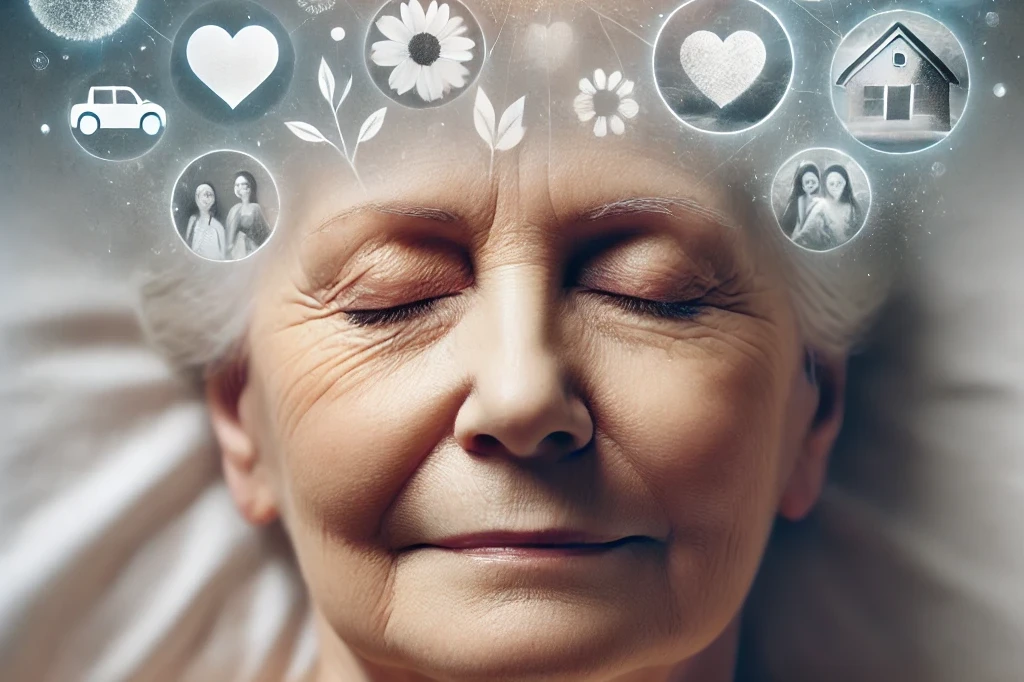Quality sleep is not only essential for maintaining physical and mental health but also significantly enhances overall quality of life. Recent research from 2024 highlights the importance of healthy sleep and offers actionable strategies to help individuals optimize their rest and achieve better health.
1. The Impact of Sleep on Health
1.1 Mental Health and Emotional Regulation
A study published in the Journal of Clinical Psychology (2024) reveals a strong link between sleep deprivation and exacerbated anxiety and depression symptoms. Among teenagers, poor sleep quality is associated with lower academic performance and emotional instability. The study recommends that schools and families increase awareness of the importance of sleep education for adolescents.
Additionally, a report by the American Psychological Association (2019) highlights that insufficient sleep impairs emotional regulation, making individuals more prone to mood swings and psychological issues.
1.2 Cardiovascular Health and Immune Function
Research from the Karolinska Institute (2024) indicates that chronic sleep deprivation significantly raises the risk of heart disease and atherosclerosis. Furthermore, a study by Prather et al. (2015) demonstrated that individuals sleeping fewer than six hours per night are four times more likely to catch a cold than those who get eight hours of rest, underscoring the critical role of deep sleep in enhancing immune function.
1.3 Cognitive Abilities and Memory Consolidation
The University of Bergen (2024) found that regular sleep patterns significantly improve workplace creativity and teamwork. Sleep-deprived individuals, on the other hand, exhibit slower thinking and impaired decision-making abilities. Earlier research by Rasch & Born (2013) showed that deep sleep is crucial for strengthening memory storage and boosting learning outcomes.
2. Core Principles of Scientific Sleep
2.1 Maintain a Consistent Sleep Schedule
Establishing regular bedtimes and wake-up times helps regulate the body’s internal clock. Grandner et al. (2016) found that consistent sleep schedules reduce the likelihood of insomnia by 30%.
2.2 Optimize Your Sleep Environment

Temperature Control: A room temperature between 18-22°C promotes deeper sleep (Okamoto-Mizuno & Mizuno, 2012).
- Minimize Light Pollution: Using blackout curtains or eye masks increases melatonin production, improving sleep onset and quality (Chang et al., 2015).
- Noise Reduction: White noise machines or earplugs can help block disruptive sounds.
2.3 Avoid Harmful Habits
Avoid using electronic devices two hours before bed. Blue light emitted by screens suppresses melatonin production and delays sleep onset (Czeisler et al., 2016).
3. How to Enhance Sleep Quality
3.1 Try Sleep-Assisting Techniques
- Meditation and Deep Breathing
Meditation and breathing exercises significantly lower stress hormone levels, facilitating quicker sleep onset. In 2024, digital meditation tools have emerged as effective supplementary therapies for individuals with insomnia (American Academy of Sleep Medicine, 2024).
Explore more in-depth techniques in “Mindfulness for Body Acceptance: Find Happiness Within” and “Meditation for Low Vision: Key Benefits and Step-by-Step Guide”. - Progressive Muscle Relaxation
This method involves sequentially relaxing muscle groups to release tension, proven effective for sleep disorders since its introduction by Jacobson (1938). Additionally, regularly listening to relaxing music can also calm your mind, making it easier to fall asleep. Below is a link to similar music.
3.2 Incorporate Physical Activity
 A study in the Journal of Sports Medicine (2024) showed that engaging in moderate-intensity exercise (e.g., brisk walking, yoga) 3-5 times per week significantly improves sleep depth and alleviates insomnia symptoms.
A study in the Journal of Sports Medicine (2024) showed that engaging in moderate-intensity exercise (e.g., brisk walking, yoga) 3-5 times per week significantly improves sleep depth and alleviates insomnia symptoms.
3.3 Adjust Your Diet
- Increase consumption of tryptophan-rich foods such as milk, bananas, and nuts (Hudson et al., 2005).
- In 2024, black foods like black beans and black sesame, rich in antioxidants, were also recommended for alleviating sleep disorders.
4. Sleep Needs Across Age Groups
4.1 Children and Adolescents
According to the American Academy of Pediatrics (2016), children need 10-12 hours of sleep daily, while teenagers require 8-10 hours. Sleep quality in teenagers directly affects their academic performance and emotional stability.
4.2 Adults
Adults need 7-8 hours of sleep per night. Liu et al. (2018) found that individuals sleeping fewer than six hours have a 48% higher risk of cardiovascular disease.
4.3 Older Adults
Older adults experience a decline in the proportion of deep sleep as they age. Scullin & Bliwise (2015) recommend midday naps and pre-sleep relaxation activities, such as reading or listening to calming music, to improve sleep quality.
5. Case Study: Transforming Life Through Scientific Sleep
A 35-year-old professional struggling with chronic insomnia saw remarkable health improvements after adopting a regular sleep schedule, meditation, and exercise routines. Within three months, she experienced increased energy levels and enhanced immune function. Her story illustrates how scientific sleep strategies can fundamentally improve health and well-being.
6. Conclusion
From mental health to chronic disease prevention and cognitive enhancement, scientific sleep is essential. The latest research in 2024 provides updated guidelines: from optimizing sleep environments to incorporating physical activity and dietary adjustments, prioritizing quality sleep is a vital step toward a healthier life. Take action today to sleep better and embrace a brighter, healthier future.
FAQs
1. How many hours of sleep do I need each night?
Most adults need 7-8 hours of sleep per night, while children and teenagers require more. Older adults may experience lighter sleep but still need 7-8 hours to maintain optimal health.
2. What can I do if I have trouble falling asleep?
Try relaxation techniques like meditation, progressive muscle relaxation, or deep breathing. Avoid caffeine and electronic devices at least two hours before bedtime, and ensure your bedroom is quiet, dark, and comfortable.
3. How does exercise affect sleep quality?
Regular exercise can improve sleep quality by helping you fall asleep faster and enhancing deep sleep. However, avoid intense workouts close to bedtime, as they may have the opposite effect.
4. Can poor sleep lead to health problems?
Yes, chronic sleep deprivation is linked to an increased risk of heart disease, diabetes, obesity, depression, and weakened immune function.
5. What foods promote better sleep?
Foods rich in tryptophan, such as milk, bananas, and nuts, can help improve sleep quality. Additionally, antioxidant-rich foods like black beans and black sesame may reduce sleep disturbances.
6. Is it okay to nap during the day?
Short naps (15-30 minutes) can boost alertness and energy without disrupting nighttime sleep. Avoid napping too late in the afternoon.
7. What is the best temperature for sleep?
The ideal bedroom temperature is between 18-22°C (64-72°F), which helps the body cool down and promotes deeper sleep.
References
- American Academy of Sleep Medicine. (2024). Insomnia treatment guidelines: Cognitive Behavioral Therapy for Insomnia (CBT-I). American Academy of Sleep Medicine.
- Karolinska Institute. (2024). Sleep deprivation and cardiovascular health: Long-term effects of poor sleep on heart disease risk. Karolinska Institute.
- Journal of Clinical Psychology. (2024). The relationship between sleep deprivation and emotional disorders in adolescents. Journal of Clinical Psychology.
- University of Bergen. (2024). Sleep and work performance: The effects of regular sleep on cognitive abilities and creativity. University of Bergen.
- Journal of Sports Medicine. (2024). The impact of regular exercise on sleep quality and insomnia symptoms. Journal of Sports Medicine.
- Grandner, M. A., Patel, N. P., Gehrman, P. R., Perlis, M. L., & Pack, A. I. (2016). Problems associated with short sleep: Bridging the gap between laboratory and epidemiological studies. Sleep Medicine Reviews, 14(4), 239-247.
- Liu, Y., Wheaton, A. G., Croft, J. B., Xu, F., Cunningham, T. J., Greenlund, K. J., & Lu, H. (2018). Sleep duration and chronic diseases among US adults. Preventive Medicine, 91, 23-27.
- Hudson, S., & Eby, J. (2005). Tryptophan and serotonin: Effects on sleep. Journal of Sleep Research, 14(2), 105–109.
- Prather, A. A., Hall, M., & Llabre, M. M. (2015). Sleep and immune function. Sleep, 38(6), 875–882.
- Walker, M. (2017). Why we sleep: Unlocking the power of sleep and dreams. Scribner.




